These interviews, conducted in the early 2000s, are located in the post-socialist milieu and focus on post-1989 democratic freedom. While some women directly discuss their place in a male-dominated public sphere, especially in relation to the Solidarity movement, other women explore their NGO collaborations, particularly when tackling issues around LGBTQ rights, domestic violence, abortion rights, and human trafficking. Most women interviewed work in academia and publish extensively on issues of gender issues and feminism in Poland. For the thematic film, a useful introduction that provides some more context for women’s activism and scholarship in Poland, see our video and transcript. The Poland episode of Contextualizing Feminist Voices, recorded in 2021, provides additional information on the country site.

Agnieszka Graff
Agnieszka Graff was born in 1970 and received a bachelor of arts degree in English Language and Literature from Amherst College in the United States and later studied literature at Oxford University. She was an assistant professor of English literature at the University of Warsaw where she translated Virginia Woolf's "A Room of One's Own" in 1997. Since 2000, she has been an assistant professor at the Center for American Studies at the University of Warsaw.
Keywords: art/writing as activism, reproductive rights
Media: Transcript (English, Polish), Video (English, Polish), Bibliography, English YouTube Video, Name Pronunciation Audio
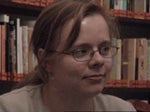
Anna Gruszczynska
Anna Gruszczynska was born in 1978. She studied English and Spanish Philology at the University of Wroclaw and at the Jagiellonian University in Cracow. In 2001, Gruszczynska started a chapter of The Campaign against Homophobia. She has organized marches and campaigns calling for gay and lesbian rights in Poland. Gruszczynska is firmly committed to fighting homophobia and regularly publishes articles about the topic in feminist magazines.
Keywords: LGBTQ rights, intersectionality
Media: Transcript (English, Polish), Video (English, Polish), Bibliography, English YouTube Video, Name Pronunciation Audio

Inga Iwasiów
Inga Iwasiów was born in 1963 and has a doctorate in feminist theory and literary criticism from the University of Szczecin where, at last contact, she was a Professor of Literature and an editor of a cultural bi-monthly Borderlands (Pogranicza). In 1994, she published Frontiers in Wlodzimierz Odojewski's Literature: A Feminist Intervention, which is considered one of the first Polish monographs in feminist theory and criticism. Iwasiów writes academic texts as well as prose and poetry, and is deeply committed to feminist language not only as an academic tool of interpretation, but also as a daily form of communication.
Keywords: art/writing as activism
Media: Transcript (English, Polish), Video (English, Polish), Bibliography, English YouTube Video, Name Pronunciation Audio

Barbara Labuda
Barbara Labuda was born in 1949 and studied Romance languages in Poznan, Poland as well as Ecole Normale Superieure in Paris, France. Labuda became active in anti-communist organizations in the 1970s for which she was imprisoned in 1982. In 1996, she began serving in President Aleksander Kwasniewski's Cabinet. She admits that the anticommunist organizations with which she worked did not support women's rights.
Keywords: imprisonment, politics and the law, reproductive rights
Media: Transcript (English, Polish), Video (English, Polish), Bibliography, English YouTube Video, Name Pronunciation Audio
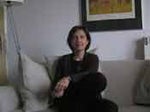
Barbara Limanowska
Barbara Limanowska was born in 1958 and studied Art History at the Adam Mickiewicz University in Poznan. In 1984, she immigrated to Holland where she participated in the squatter movement and collaborated on feminist projects in Poland. She returned to Poland and in 1993 co-founded La Strada, a foundation committed to fighting trafficking in women. She has worked with La Strada and various other anti-human trafficking organizations in Poland, Thailand, and the former Yugoslavia.
Keywords: gender-based violence, feminist conferences, human trafficking/prostitution
Media: Transcript (English, Polish), Video (English, Polish), Bibliography, English YouTube Video, Name Pronunciation Audio
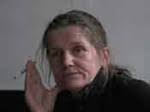
Anna Lipowska-Teutsch
Anna Lipowska-Teutsch was born in 1944 in Warsaw, Poland. She graduated with a Master of Arts in Psychology from the Jagiellonian University in Cracow in 1969. She worked for the Acute Poisoning Clinic in Cracow where she counseled victims of suicide, especially women who had been victimized by family members. In 1990, she co-founded the Society for Crisis Intervention designed to intervene in cases of domestic violence. Since 2002, she has also worked for the rights of Roma (a.k.a. "gypsies") women in Poland.
Keywords: gender-based violence
Media: Transcript (English, Polish), Video (English, Polish), Bibliography, English YouTube Video, Name Pronunciation Audio
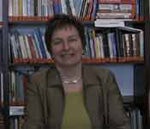
Joanna Regulska
Joanna Regulska was born in 1951 in Warsaw, Poland. She studied geography at the University of Warsaw in Poland and at the University of Colorado in the United States. In 1989, she co-founded the Foundation for Development of Local Democracy in Poland. She directs the Department for Women and Gender Research at Rutgers University in the USA Regulska has a daughter and divides her life and work between Poland and the United States.
Keywords: feminist conferences, disability rights
Media: Transcript (English, Polish), Video (English, Polish), Bibliography, English YouTube Video, Name Pronunciation Audio
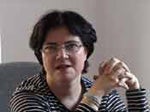
Malgorzata Tarasiewicz
Malgorzata Tarasiewicz was born in 1960. She is the organizer and leader of the Polish section of the Network of East-West Women. Tarasiewicz became involved in anti-Communist university strikes as a student during the early 1980s, which eventually led to her activism on behalf of women's rights. She admits that the labor unions with which she was involved were anti-feminist, especially during the early 1990s with the national anti-abortion debate supported by the overwhelmingly male leadership of the Solidarity Labor Union and the Catholic Church.
Keywords: international rights
Media: Transcript (English, Polish), Video (English, Polish), Bibliography, English YouTube Video, Name Pronunciation Audio

Anna Titkow
Anna Titkow was born in 1942. She has a doctorate in Sociology from the University of Warsaw and has worked as an instructor and researcher in medical sociology since 1979. At last contact, she was serving as a Professor of Gender Studies at the Institute of Philosophy and Sociology in Warsaw. Titkow is a notable feminist scholar and one of her earliest efforts was a contribution to the "Sisterhood is Global" anthology published in 1984. Titkow's work challenges Polish gender and sexuality taboos.
Keywords: academia and women's studies, reform of domestic/family roles
Media: Transcript (English, Polish), Video (English, Polish), Bibliography, English YouTube Video, Name Pronunciation Audio
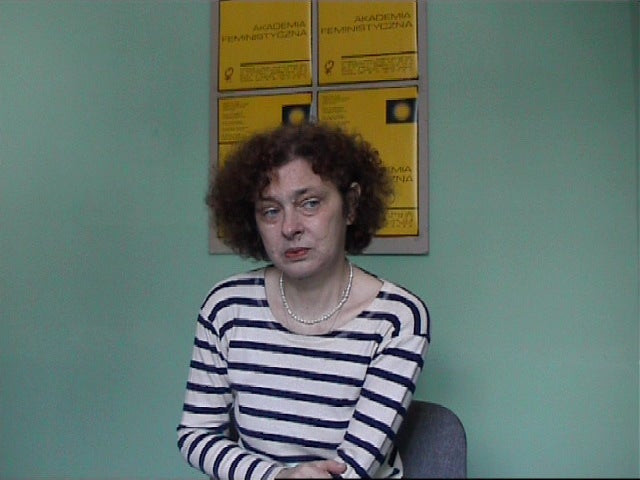
Bozena Uminska
Bozena Uminska was born in 1948 and studied psychology, Polish philology, and philosophy at the University of Warsaw where she received a doctorate in 2001. She is the co-founder of the Polish Feminist Association and a translator of Maggie Humm's The Dictionary of Feminist Theory. In 2002, her book A Figure with Shadow: Jewish Women in Polish Literature from the End of the 19th Century to 1939 was among the top twenty nominated for Nike, the most prestigious literary award in Poland.
Keywords: LGBTQ rights
Media: Transcript (English, Polish), Video (English, Polish), Bibliography, English YouTube Video, Name Pronunciation Audio



